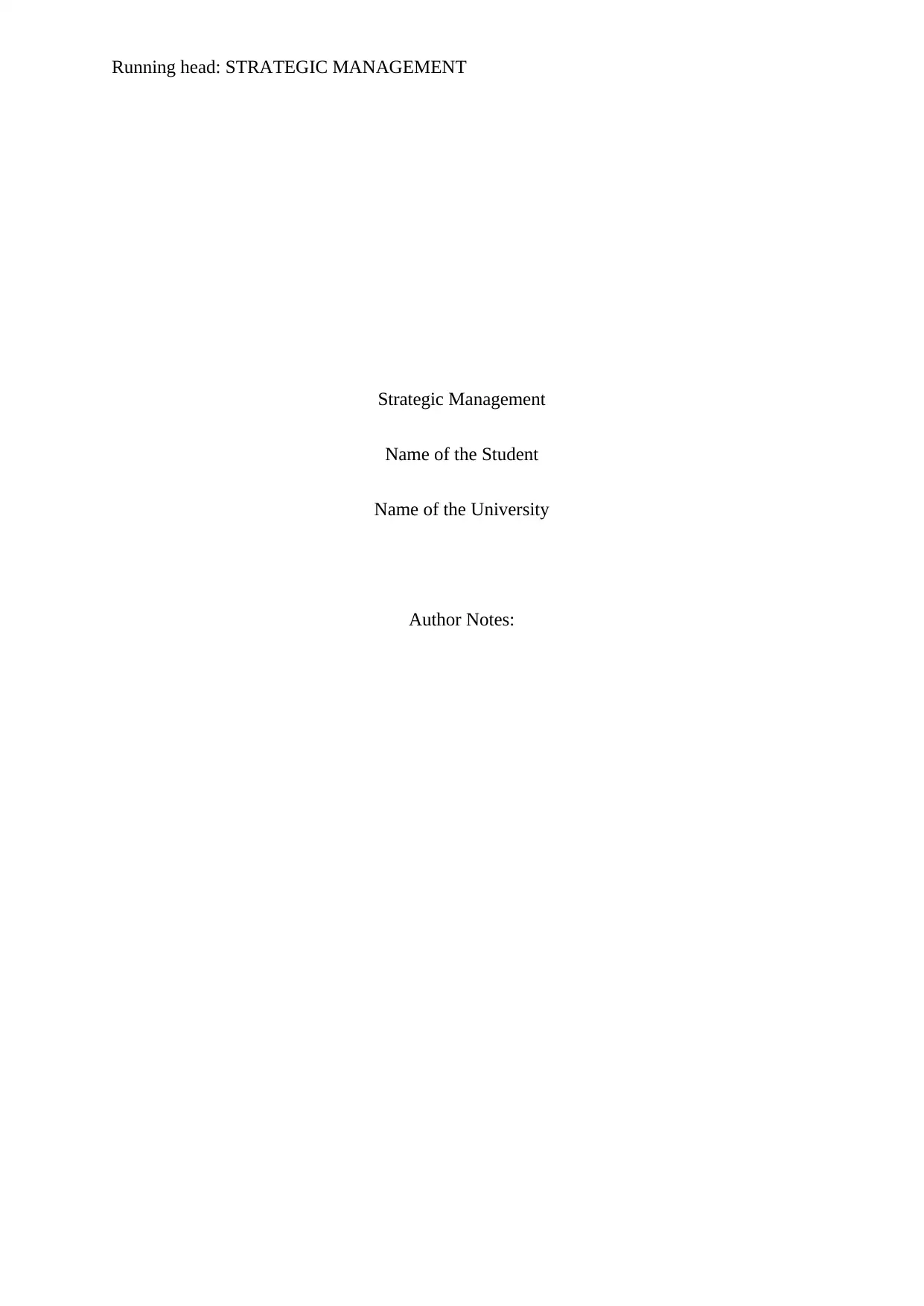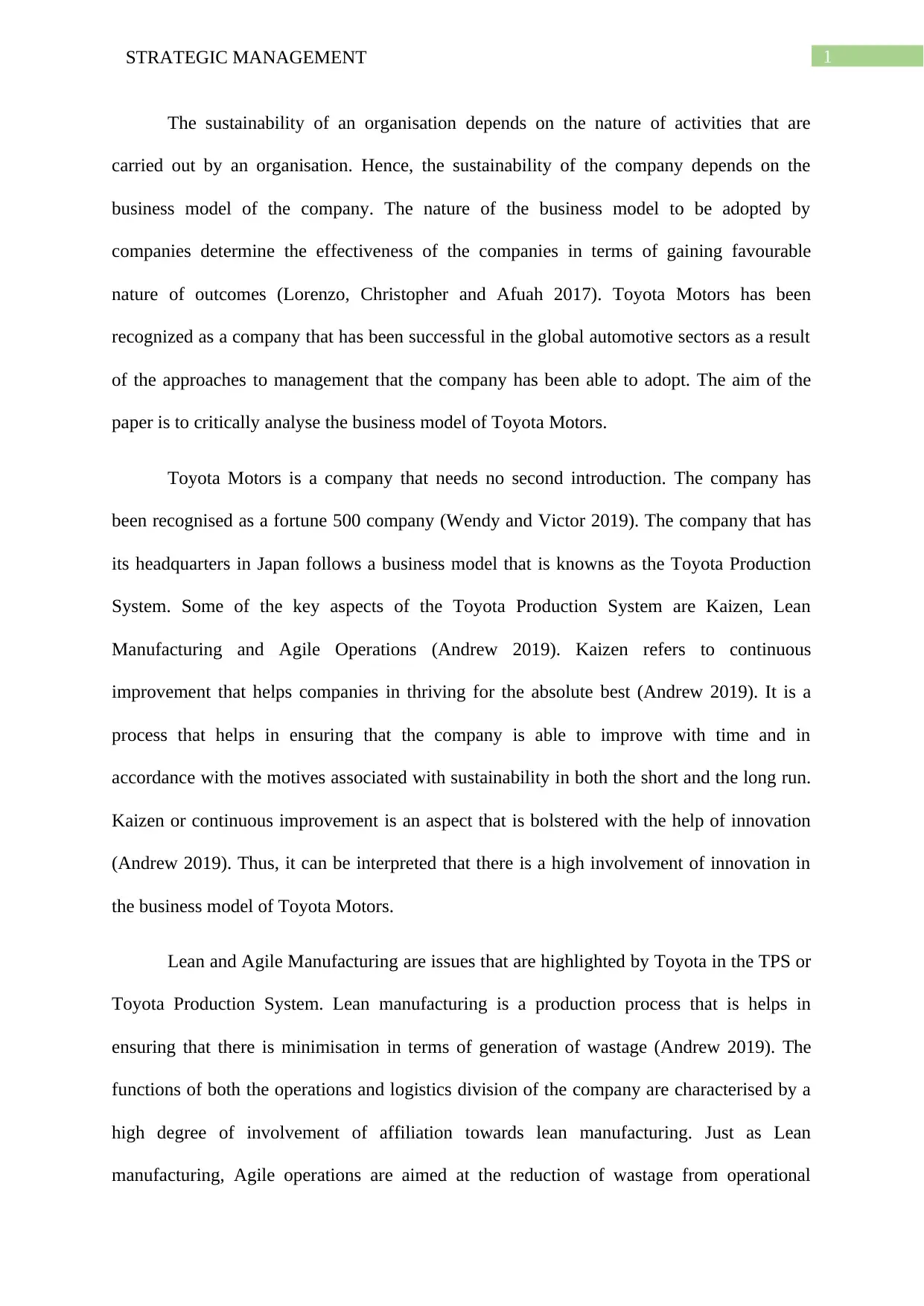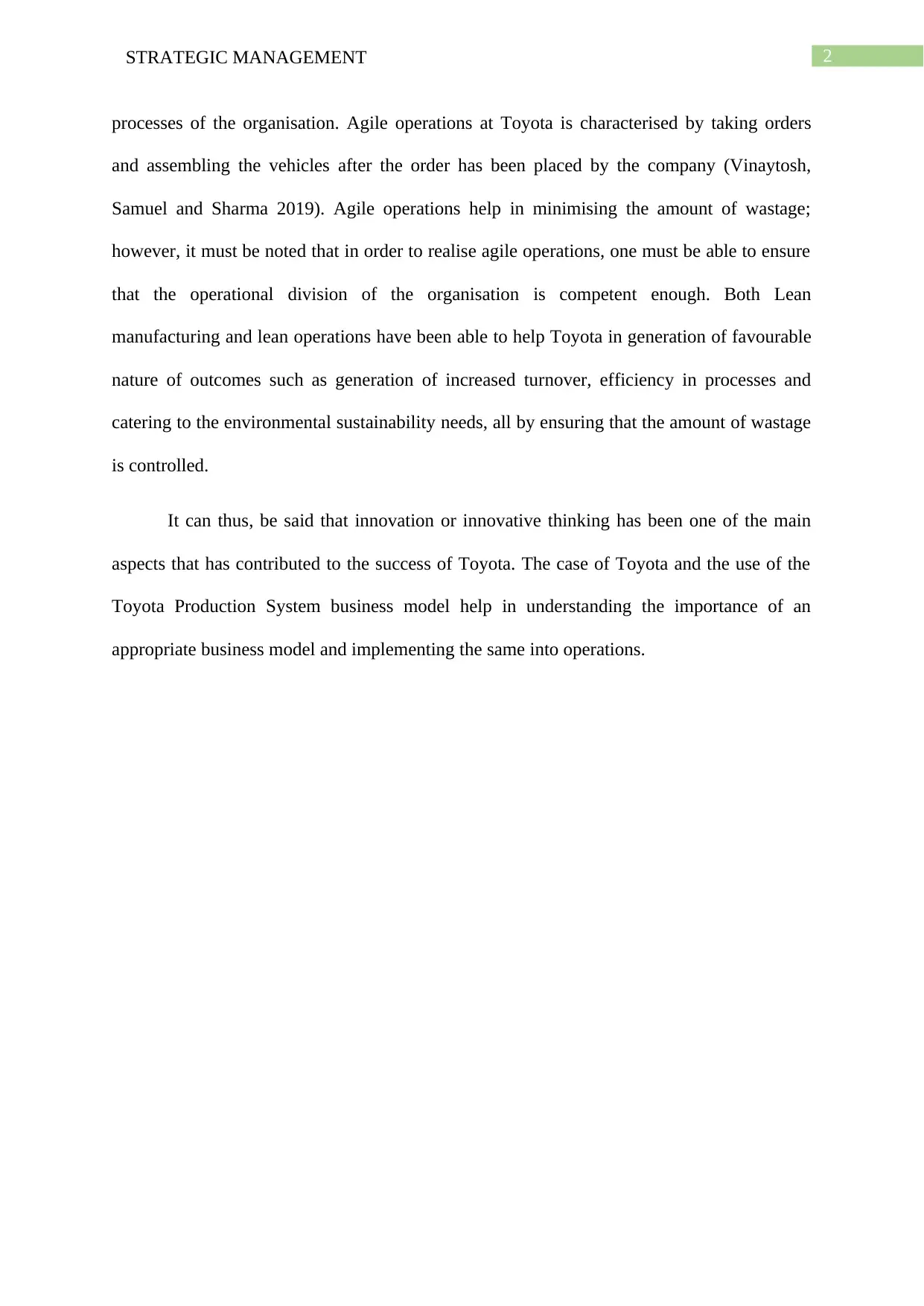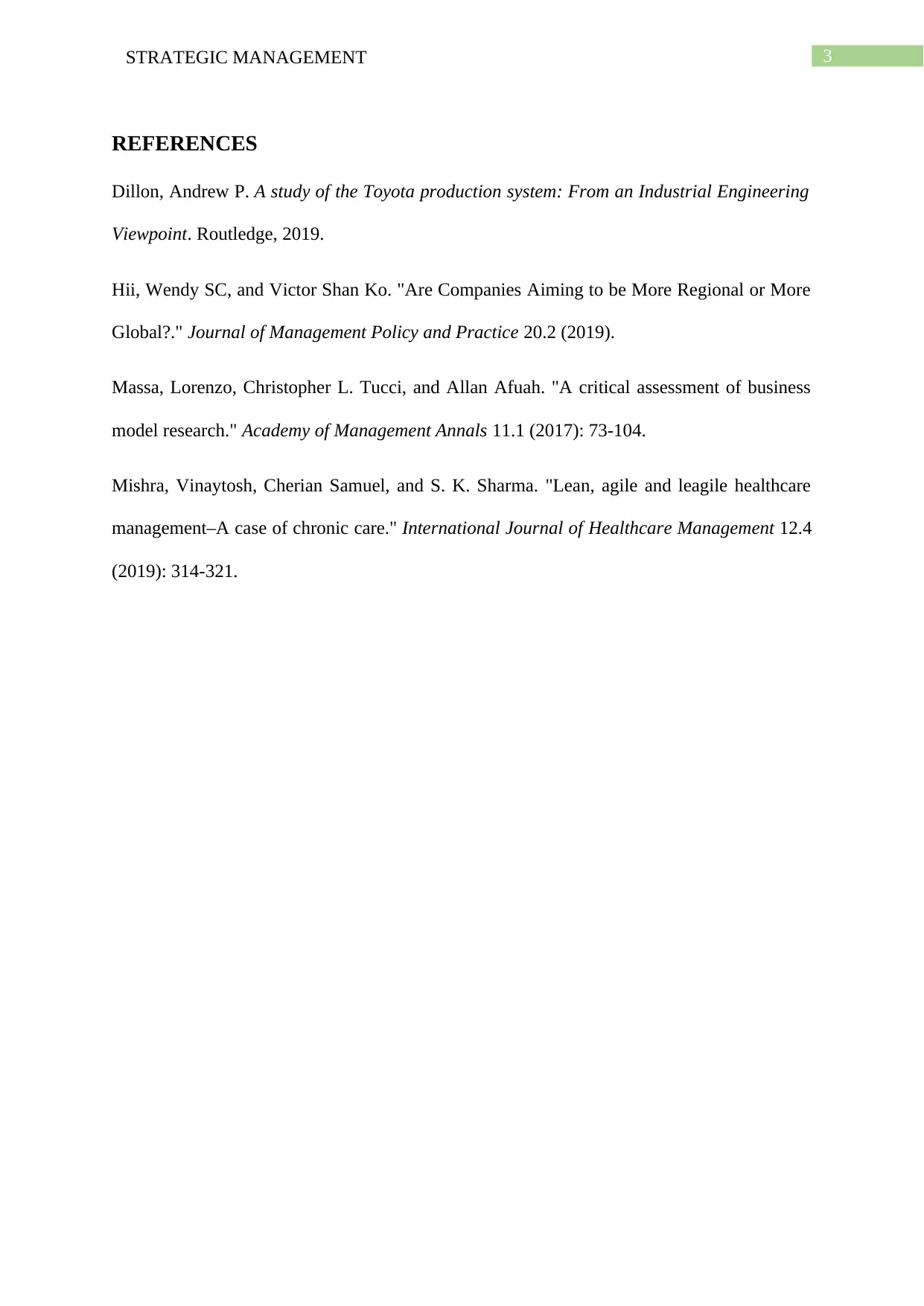Strategic Management Report: Business Model of Toyota Motors
VerifiedAdded on 2022/08/20
|4
|710
|9
Report
AI Summary
This report provides a critical analysis of the business model employed by Toyota Motors, a globally recognized leader in the automotive industry. The study focuses on the Toyota Production System (TPS), highlighting key aspects such as Kaizen (continuous improvement), Lean Manufacturing, and Agile Operations. The report explains how Kaizen fosters innovation and long-term sustainability, while Lean Manufacturing and Agile Operations contribute to efficiency, waste reduction, and environmental sustainability. The analysis emphasizes the importance of an appropriate business model and its effective implementation in operational processes, contributing to Toyota's success in terms of increased turnover and environmental responsibility. The report also references key academic sources to support its findings.
1 out of 4











![[object Object]](/_next/static/media/star-bottom.7253800d.svg)